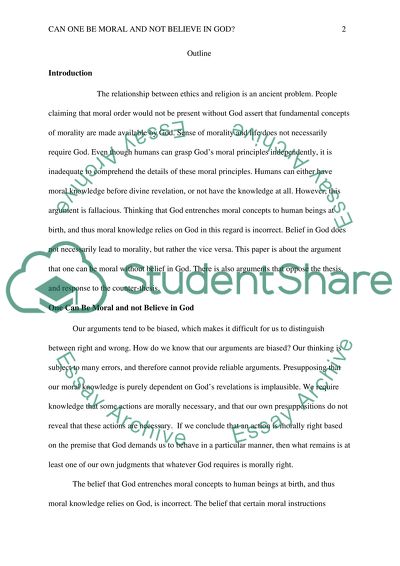Cite this document
(“Can one be moral and not believe in God Research Paper”, n.d.)
Retrieved from https://studentshare.org/sociology/1400970-can-one-be-moral-and-not-believe-in-god
Retrieved from https://studentshare.org/sociology/1400970-can-one-be-moral-and-not-believe-in-god
(Can One Be Moral and Not Believe in God Research Paper)
https://studentshare.org/sociology/1400970-can-one-be-moral-and-not-believe-in-god.
https://studentshare.org/sociology/1400970-can-one-be-moral-and-not-believe-in-god.
“Can One Be Moral and Not Believe in God Research Paper”, n.d. https://studentshare.org/sociology/1400970-can-one-be-moral-and-not-believe-in-god.


